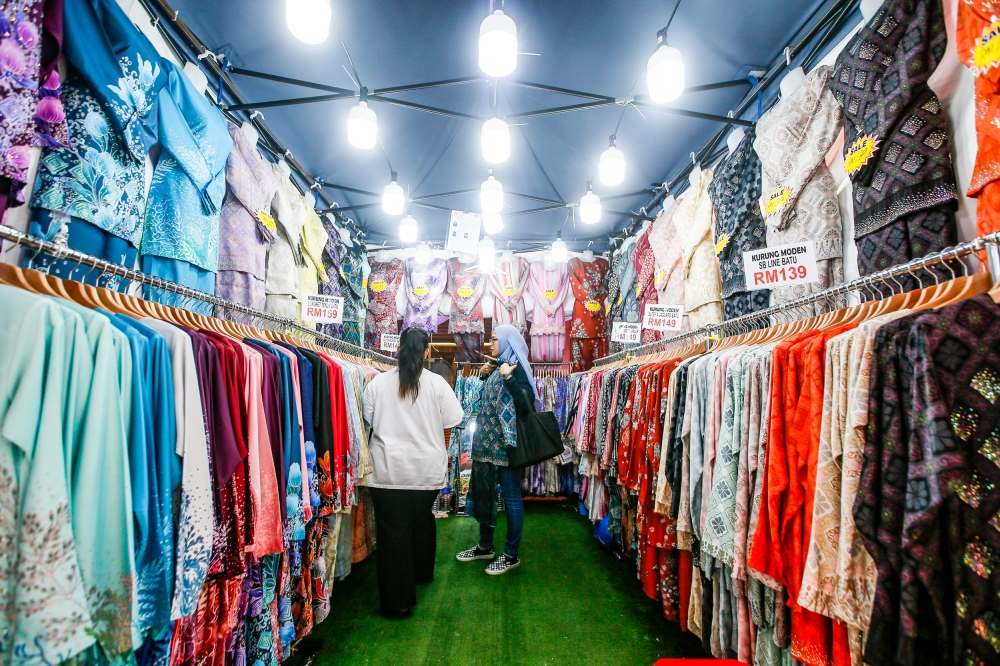KUALA LUMPUR, April 5 — Hari Raya Aidilfitri is a time of gratitude, kindness and forgiveness, bringing the whole family together for a joyous celebration.
However, it is a season also notorious for creating more waste and pollution to the environment.
In 2023, the Malaysian Agricultural Research and Development Institute (Mardi) reported that it had collected 86,177 tonnes of food waste during Ramadan.
This year, Mardi reported that 30,000 kilogrammes of unsold food was collected at bazaars in just the first two weeks of Ramadan, compared to last year’s 25,000 kilogrammes.
Advertisement
Combine the food waste with the excessive shopping, outdoor fireworks and frequent travelling and it’s clear to see that the environment will be harmed more during this season.
According to Sunway Centre for Planetary Health Executive Director Tan Sri Dr Jemilah Mahmood, it is more important than ever to be considerate towards the environment.
Dr Jemilah has had over two decades of experience as a medical professional and is the founder of medical charity organisation MERCY Malaysia
Advertisement
She also served as a former Special Advisor to the Prime Minister on Public Health from March 2020 to August 2021.
“Hari Raya emphasises on avoiding excessiveness and wastefulness during feasting and exchanging of gifts,” Dr Jemilah told Malay Mail.
“In the same way, sustainable practices advocate for a lifestyle that is balanced and discourages the act of overconsumption of resources that degrade the health of both people and the environment.”
Dr Jemilah gave her advice on how Malaysians can go green this Raya to cut down environmentally harmful practices in their celebrations.
Mindful cooking
Lavish feasts are common in Hari Raya celebrations, but these festivities often result in increased food waste.
To combat this, families can incorporate sustainable practices into their cooking and meal preparations.
Dr Jemilah recommends opting for locally sourced, organic ingredients to support local farmers and reduce carbon emissions associated with transportation.
She also advised to prepare meals that contain a balanced diet, with equal vegetable and meat dishes and minimising food waste through efficient meal planning.
This will prevent people from overbuying and encourage them to save leftovers for their future meals.
“Additionally, composting organic scraps completes the cycle, turning kitchen waste into nutrient-rich soil for gardening,” Dr Jemilah said.
“At our home, we have a philosophy that nothing organic leaves the home. Our waste is composted, and we grow our own vegetables using the compost.”
Avoiding single-use plastics and embracing biodegradable packaging for party favours can minimise harm to the environment.

Buying excess clothes will contribute to more waste filling up landfills. — Picture by Hari Anggara
Sustainable shopping
Raya fashion is a fun trend to showcase each family’s unique sense of style, not to mention taking the best family photos for social media.
This means that many will flock to the shops to get their hands on new sets of baju Melayu, batik and kebaya for the whole family.
The fashion industry’s environmental footprint is significant, with conventional textile production being one of the biggest culprits of pollution and waste.
Dr Jemilah said that fashionable folk can make sustainable clothing choices by purchasing items made from recyclable materials like cotton, bamboo or silk.
She also recommended supporting ethical local fashion brands that make clothing of higher quality so that they can be worn for future Raya celebrations.
By supporting ethical brands, people are able to contribute to a more sustainable local fashion industry.
Dr Jemilah also praised the vintage and pre-owned thrift store movement among younger generations, adding that she herself has given away some baju kurung for family and friends to use.
Reducing travel-related emissions
The ride back to balik kampung can be another source of pollution as it produces carbon emissions and depletes fuel reserves.
Travellers can use alternative transportation methods such as carpooling or public transport to lower their carbon footprint.
Dr Jemilah also suggested planning travel routes efficiently, using the most fuel efficient routes to save fuel.
“Offsetting carbon emissions through reputable carbon offset programs is another effective strategy,” she said.
“These programs invest in projects that reduce or capture greenhouse gas emissions. By purchasing carbon offsets, individuals can compensate for the emissions generated by their travel activities.”
For those who are overseas or visiting family who live abroad, consider virtual gatherings or celebrating closer to home which reduces the need for long-distance travel.

Dr Jemilah says that educating younger generations on sustainability this Raya is important. — Picture courtesy of Sunway Planetary Health
Creating a green festive mood
The vibrant green decorations are arguably the most iconic visuals of the Raya season, but some of them are made from non-‘green’ material.
Traditional decorations like tiki torches often include materials harmful to the environment like petroleum while fireworks can create smoke and noise pollution.
While it may be hard for some to let go of these nostalgic elements, Dr Jemilah said that they can be replaced with more environmentally safe options.
“Using sustainable decorations such as reusable banners, natural materials like flowers and foliage and energy-efficient LED lights are key,” she said.
“Energy-efficient LED lights consume less energy than traditional incandescent bulbs, reducing electricity usage and greenhouse gas emissions.”
“Natural materials not only add a touch of beauty but also decompose naturally, posing minimal harm to the environment.”
Beyond celebrations, Dr Jemilah hopes communities can speak out and take action to raise awareness of sustainability initiatives during Hari Raya.
She said hosting workshops, organising green-themed bazaars and initiating recycling or upcycling projects encourage a shared responsibility for the community.
Using the power of social media and other channels can amplify the importance of caring for our Earth this Raya, inspiring action among all generations of Malaysians.
